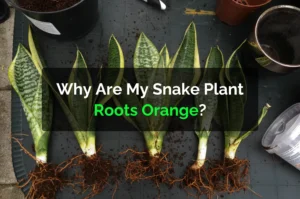Snake plants, also known as Sansevieria or Mother-in-law’s Tongue, are popular houseplants due to their hardiness, low maintenance, and ability to purify the air. They are ideal for both beginners and seasoned plant lovers alike. However, if you’re a pet owner, you may wonder whether this plant is safe for your furry friends, particularly rabbits. Let’s explore whether snake plants pose a threat to rabbits and what you need to know to keep your pets safe while enjoying these beautiful plants.
Understanding Snake Plants and Their Toxicity
Snake plants are native to tropical West Africa and are known for their striking, upright leaves that come in various shades of green, often with yellow edges. While they are great for indoor environments, it’s important to note that many common houseplants, including snake plants, contain compounds that can be toxic to pets.
The main compound responsible for the toxicity of snake plants is saponins. These naturally occurring chemicals protect the plant from pests and fungi, but they can cause mild to moderate symptoms if ingested by animals, including rabbits.
Do Snake Plants Poison Rabbits?
Yes, snake plants can be harmful to rabbits if they chew on or ingest parts of the plant. However, the toxicity of snake plants to rabbits is relatively mild compared to other toxic plants. Rabbits are not typically known for seeking out harmful plants, but if they are particularly curious or hungry, they may nibble on a snake plant.
If a rabbit ingests snake plant leaves, the saponins can cause digestive issues. Symptoms of poisoning in rabbits may include:
- Vomiting (though vomiting is rare in rabbits)
- Diarrhea
- Lethargy
- Decreased appetite
- Drooling
While snake plants are not fatal to rabbits in most cases, it’s always better to prevent your pet from coming into contact with any potentially harmful plants.
How to Keep Your Rabbit Safe from Snake Plants
If you’re a rabbit owner and you have snake plants in your home, there are several steps you can take to ensure your pet remains safe:
1. Place Snake Plants Out of Reach
Rabbits are excellent jumpers and climbers, so it’s important to place your snake plants in areas where your rabbit cannot reach them. High shelves, hanging baskets, or rooms where your rabbit is not allowed are good options. This is the simplest and most effective way to prevent accidental ingestion.
2. Use a Plant Barrier
If you want to keep your snake plants in areas where your rabbit has access, consider using a physical barrier around the plant. This can include a small fence or a plant stand with a protective cover. It will make it harder for your rabbit to get to the plant while still allowing you to enjoy the beauty of your snake plants.
3. Introduce Safe Plants for Your Rabbit
If you want your rabbit to enjoy the benefits of greenery without risking their health, consider offering safe plants like parsley, cilantro, dandelion greens, and hay. These safe alternatives will satisfy their curiosity and grazing instincts without causing harm.
4. Observe Your Rabbit’s Behavior
Keep an eye on your rabbit to see if they are exhibiting any signs of distress after being around your snake plant. If they do show symptoms of poisoning, take them to a vet as soon as possible for treatment.
Are Snake Plants Poisonous to Other Pets?
While this article focuses on rabbits, it’s worth noting that snake plants can also be toxic to other pets, including dogs and cats. Saponins affect a variety of animals, and pet owners need to be aware of the potential risks. If you have multiple pets, it’s best to keep snake plants in an area that only you can access.
Frequently Asked Questions (FAQs)
What should I do if my rabbit eats part of a snake plant?
If your rabbit eats any part of a snake plant, watch for signs of poisoning, such as diarrhea, lethargy, or drooling. If you notice any of these symptoms, contact your veterinarian for advice and potential treatment.
Are snake plants more toxic to rabbits than other plants?
While snake plants are mildly toxic to rabbits, they are not the most toxic houseplants. However, it’s still best to keep them out of reach to prevent any potential harm.
Can rabbits eat any part of a snake plant?
Rabbits should avoid eating any part of a snake plant, as even small amounts of the leaves or stems can cause digestive upset due to the saponins present in the plant.
How do I know if a plant is toxic to my rabbit?
Before introducing a new plant to your home, it’s essential to research whether it is safe for rabbits. You can also consult your veterinarian or check reputable pet safety databases.
Are snake plants safe for other pets like cats and dogs?
Snake plants can be toxic to both cats and dogs as well. It’s always a good idea to keep all houseplants out of reach of your pets, especially if you are unsure about their safety.
Conclusion
In conclusion, while snake plants are not highly toxic to rabbits, they can still cause mild symptoms of poisoning if ingested. As a responsible pet owner, it’s important to keep these plants out of your rabbit’s reach and observe any signs of distress if they have access to them. By taking simple precautions, such as placing your snake plants in safe areas and offering rabbit-friendly alternatives, you can create a pet-friendly environment while still enjoying the beauty of these hardy plants.
Remember, always be cautious with any plant that may pose a risk to your pets. Your rabbit’s safety is worth the extra effort to ensure a healthy and happy home for both you and your furry friend.






